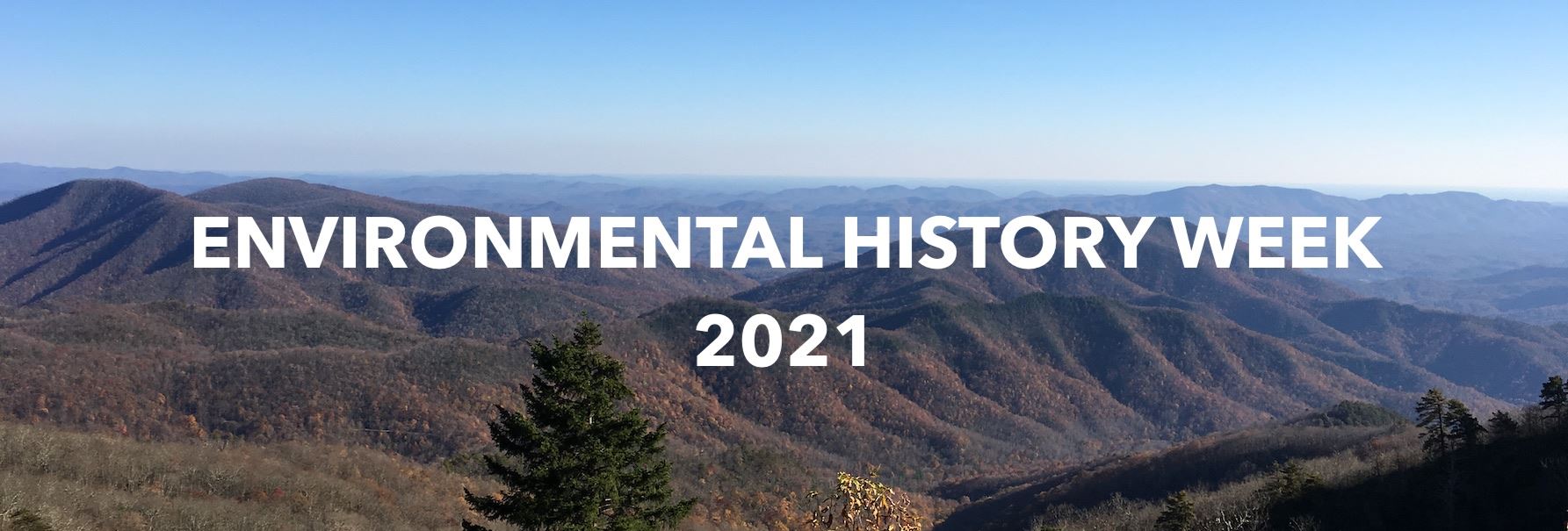Below is a list of considerations and tips to help plan a successful Environmental History Week event.
1. Use H-Environment and ASEH's Environmental History Week webpage to find collaborators and participants in your area.
2. Once you have an idea for your Environmental History Week event, write a brief description of your event, including -
Theme/Title: What idea will your event explore?
- Goal: What do you want this event to accomplish? (present and discuss emerging scholarship, create new Environmental History research resources, bring together academics and activists, increase public awareness of Environmental History, something else?)
- Audience: Who is this event for? (professors, undergrads, community members, env professionals, k-12 teachers)
- Outreach: How will you get the word out to these audiences?
- How many people do you expect to present? to participate as an audience?
- Is this participation in-person or online?
-
- Activities: A brief description (2-3 bullet points) of what this event is
- Locations or facilities needed: Where will you hold this event
- Contingency plan: If you are planning an in-person event, how will you hold your event if public health still requires physical distancing?
3. Logistics and costs? - Event dates: Environmental History Week will be scheduled for April 19-25, 2021, concentrated on Thursday, April 22, 2021 (Earth Day), or Saturday, April 24, 2021. You can also schedule an event on another day.
- What physical facilities do you need for your event? For each of these items, identify a source/vendor, total cost, and required deposit:
- meeting rooms
- catering
- audio-visual equipment
- other computer equipment
- bus rental
- Reserve spaces and facilities - including paying deposits -- as early as you can.
- Contingency planning: If you have multiple options, select the facilities that have the most flexible cancellation policies so that you do not lose money if COVID-19 prevents a face-to-face gathering.
- Fees, donations, and fundraising:
- Cost for participants: You cover your costs by charging participants, by asking for donations, or by applying for grants.
- Grants may be a particularly good option for Environmental History Week events intended for the general public or K-12 teachers. Many national and regional foundations fund local history, teacher training, and educational events for the general public.
- Ask participants, academic departments, and local businesses for donations or sponsorships.
- Use your event as a collaborative fundraising program for ASEH, a local school or university, and local non-profit. Universities and non-profits have fundraising staff who may be able to help. If you engage in collaborative fundraising, decide on the division of net proceeds before you begin fundraising.
4. Participants and speakers:
- Invite keynote speakers as early as you can.
- Are you providing travel costs or honoraria? If so, have a plan for covering those costs.
-
- Inviting participants: Issue a call for participants as early as you can.
- Consider ways to include individuals who do not normally attend ASEH meetings by specifically inviting colleagues who engage environmental history through other fields and subdisciplines, or by defining your event to welcome participants who teach but do not research environmental history, who do other kinds of environmental work, or who will add a different perspective on our field.
-
- This may require outreach to other kinds of organizations, or at least to other departments in universities.
5. Advertising your event:
-
By early March, 2021, write and distribute a short press release to:
-
- University events announcements and newsletters
- Museum and historical society newsletters
- environmental non-profit newsletters and web pages
- local press, including newspapers, events listings. Public radio stations often have local events listings, too.
-
- If your audience includes K-12 teachers, call your local school district early in your planning process to find out how to advertise to teachers. Teachers often need continuing education credits - so any event targeting teachers should include some way to give them that credit.
- Team up with student groups and others who organize Earth Day events in your community.
|

